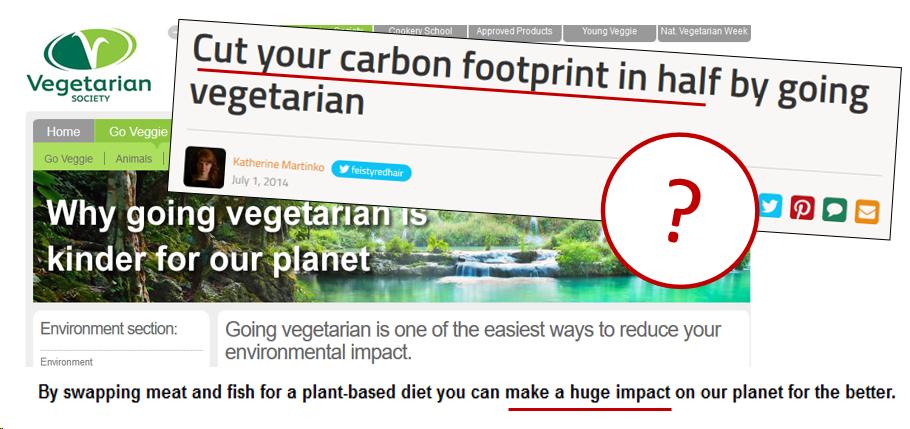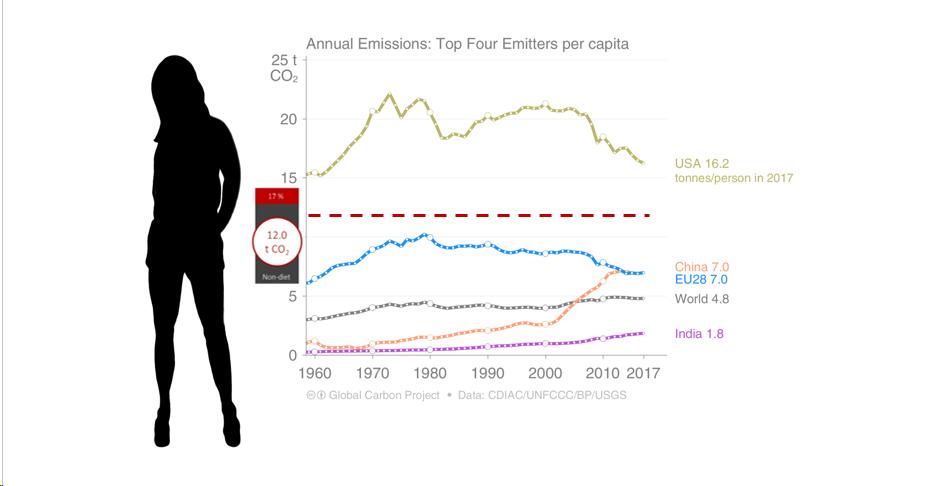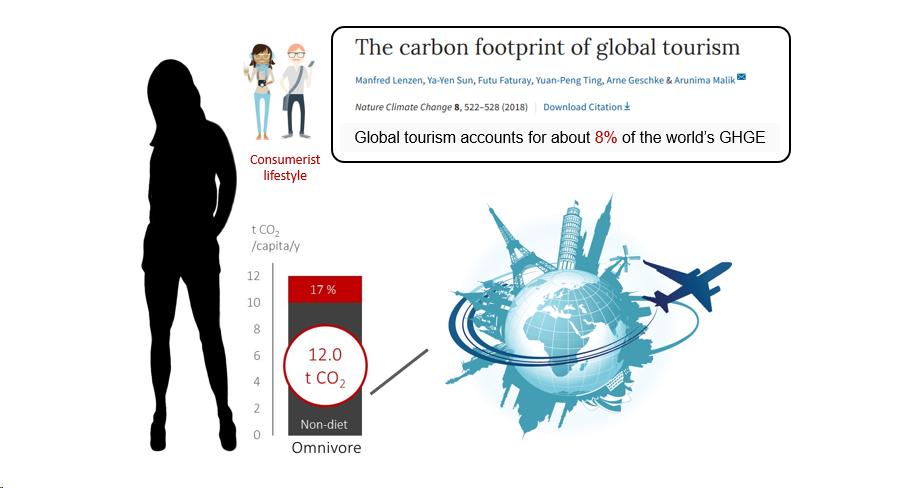THREAD: avoiding meat is often said to be one of the most powerful interventions to reduce one& #39;s greenhouse gas emissions. The wildest numbers are cited. Some groups (eg #EATLancet) are now lobbying to impose a & #39;meat tax& #39; on us. Below some data to put this in perspective.
1/n
1/n
Let& #39;s assume that a person& #39;s yearly impact in CO2-eq is somewhere half way between the USA and EU, say 12 t CO2-eq.
2/n
2/n
Going vegetarian would mean an estimated reduction of 0.5 t CO2-eq/y, so about 4% difference. That is very far from halving your carbon footprint!
See also: https://www.project-syndicate.org/commentary/meat-production-overstated-effect-on-climate-change-by-bjorn-lomborg-2018-11
3/n">https://www.project-syndicate.org/commentar...
See also: https://www.project-syndicate.org/commentary/meat-production-overstated-effect-on-climate-change-by-bjorn-lomborg-2018-11
3/n">https://www.project-syndicate.org/commentar...
If one also takes into account rebound effects, this would imply that only a 2% difference will be achieved. A meagre result, I& #39;d say, while being stuck with a restrictive diet.
4/n
4/n
So, why all the fuss about skipping meat? Shouldn& #39;t we at least also talk about the growing emissions caused by mass tourism? That upcoming trip to Ibiza, Florence, Paris, or Mexico?
5/n
5/n
Or the impact of ICT that may well reach 14% in 2040? Nobody puts the blame on smart phones, so why exactly is that steak being criminalized? I& #39;m even leaving aside the fact that the methane production from cattle is a very different story than fossil fuel-derived CO2.
6/n
6/n
And why is it worse to eat meat than to keep a horse (>2 t CO2-eq/y) or a dog (1 t CO2-eq/y)? At least that is what media discourse seems to imply, being very noisy on the former but almost silent on the latter. Remember: going vegetarian =-0.5 t CO2-eq/y.
7/n
7/n

 Read on Twitter
Read on Twitter








